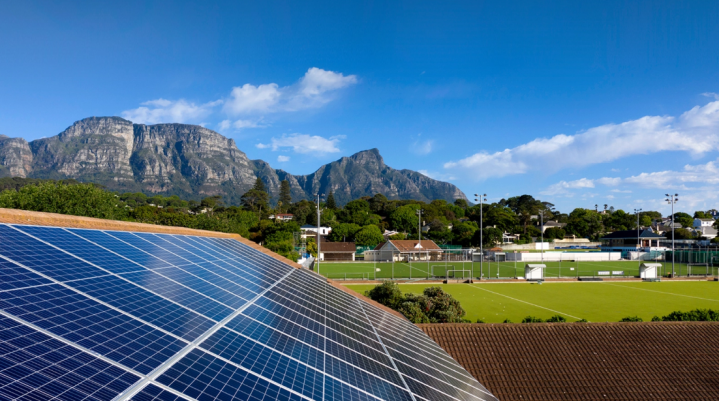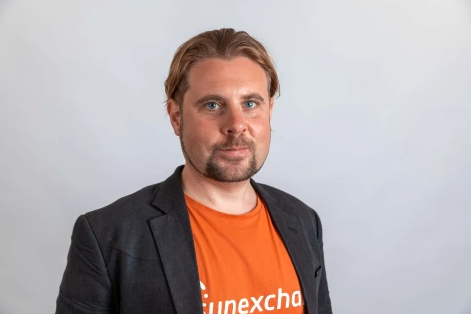SPONSORED CONTENT
South Africa’s business leaders can solve the energy crisis

Imagine a South Africa with load shedding a dim memory, a flourishing economy, booming investments, safer and cleaner jobs and air pollution drastically reduced along with pollution-related illness. This is the legacy we can leave for future generations by transitioning our country to clean energy.
We’re nowhere near that dream yet. Load shedding is costing the nation between R1.5 billion to R6 billion per day. A short-term public sector solution is deemed virtually impossible, with the national government crisis plan expected to take a decade to be fully implemented. Even at the municipal level, more nimble local governments, such as the City of Cape Town, are projecting that renewable energy from independent power producers will take four years to bring online.
The private sector is the only actor with the capital, agility and speed to address this emergency quickly. This acknowledgement is reflected in recent decisions to remove the 100 megawatt licensing threshold for large energy consumers, and in the President’s energy crisis plan, which relies heavily on the private sector to drive, fund and support large- and utility-scale renewables. In July, Eskom met with the top leadership from 70 corporations to discuss private-sector led solutions to the energy crisis.
These measures focus on the most powerful private sector players, but more needs to be done. It is time for all business leaders to take charge, from SMEs to the largest multinationals.
CEOs and their executive counterparts are the most important enablers and drivers of sustainable business and ESG (environmental, social and governance) decisions. In business, sustainability is driven by leaders’ values, their acumen translating those values into action and their ability to convince shareholders that sustainability is good business. Leaders also create and influence business culture, critical to implementing sustainability plans. They decide how capital is spent.
It is sobering to fathom how much impact business leaders can have.
If the leaders of the 10 largest South African companies invested just 1% of profits into supplying solar power with battery backup for schools, by 2025, every school in the country could be solar powered and protected from load shedding.
If these same companies continued their investment until 2030 by solar powering hospitals and retirement homes, this would reduce the load on the national grid by 2 gigawatts, equivalent to two stages of load shedding, avoiding approximately 400,000 tonnes of annual carbon emissions. The energy storage added would end load shedding-related disruptions to education, improve healthcare for vulnerable populations, potentially saving lives in the process, and set a powerful example for our future leaders. This does not mean giving away capital – it means applying capital, such as funds allocated for ESG, to measures and initiatives that offer a return, while also actively addressing the energy crisis.
Smaller companies may have smaller budgets, but they can often move faster and collectively, can make a significant impact. Leading automotive platform Cars.co.za, recently partnered with Sun Exchange to buy into an off-grid solar power plus battery storage project being leased to Karoo Fresh, a commercial farm in South Africa’s Karoo district. By using the Sun Exchange platform to buy more than 16,000 solar cells to power and supply battery storage for the farm, Cars.co.za is using its balance sheet to drive sustainable energy development.
Via the Sun Exchange platform, Karoo Fresh pays Cars.co.za for the energy it consumes, which creates an alternative income stream for Cars.co.za over the 20-year lifespan of the solar project. Annually, the project will replace an estimated 90,000 litres of diesel, avoiding approximately 240 tonnes of carbon dioxide emissions, equivalent to roughly 960,000 kilometres driven in an average car.
Another company used the Sun Exchange platform to buy solar cells to power Pioneer School in the Western Cape, which serves visually impaired learners, many of whom are from low-income households. The solar project provides the school with more than ZAR 8,000 in average monthly energy cost savings and is expected to avoid approximately 3,200 tonnes of carbon emissions over its 20 year lifetime. Additionally, the company has chosen to donate earnings from its solar assets back to Pioneer School, further deepening the financial benefit for the school.
Several other companies have worked with Sun Exchange to buy into solar projects powering schools, retirement homes and other organisations, making a positive collective impact while reaping financial benefits.
There is strong evidence from around the globe that companies, such as Cars.co.za, that prioritise sustainability, perform better. They attract more customers and better talent, reduce costs, optimise investment returns, have better stakeholder relations and staff retention rates, and avoid investments that have longer-term environmental implications. Data shows that sustainability can affect operating profits by up to 60%.
If, as business leaders, we acknowledge these benefits and take our responsibility to address the energy crisis seriously, we need to ask ourselves what we can do to make an impact? Have we really explored every avenue for action? Installing solar power and ensuring energy efficiency for our own organisations is a start, but there is more we can do.
The scope for action is wide and limited only by our ingenuity and willpower. During just the one meeting between Eskom and 70 business leaders, attendees identified many private sector actions, from own generation and purchasing power from IPPs, to wheeling agreements, energy efficiency, protection of energy infrastructure and contributions to policy development.
There is an opportunity to do even more. Money is needed to solve the crisis, and any organisation with the ability to create innovations or funding mechanisms, or to fund solutions, should act. Cars.co.za is a forward-thinking company that is doing just this. They’ve demonstrated strong sustainability leadership and are proving that acting for the greater good can also be good for business.
If every business leader in South Africa takes a similar action, collectively, we can be radical agents of change. We can solve the energy crisis and propel South Africa into an age of abundant, clean, reliable, sustainable energy. We can create this beautiful legacy for our children, their children and more generations to come.
Email [email protected] or visit www.brighterbusiness.co.za to learn how your business can earn while making a positive impact. DM
By Abraham Cambridge, Founder, Sun Exchange

















 Become an Insider
Become an Insider
Comments - Please login in order to comment.